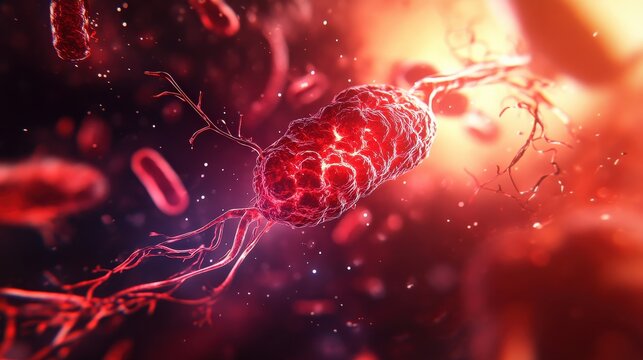
Growth hormone (GH), produced by the pituitary gland, plays a central role in metabolism, body composition, cellular repair, and muscle growth. As we age, GH production naturally declines. However, several lifestyle strategies have been shown to naturally support and even elevate GH levels without pharmaceutical intervention. Here’s what the research tells us.
1. Optimize Sleep Quality
Growth hormone is secreted in pulses, with the largest surge occurring shortly after the onset of deep, slow-wave sleep. Poor sleep quality or sleep deprivation can severely blunt this natural rhythm.
To optimize GH:
- Go to bed at consistent times.
- Limit blue light exposure at night.
- Create a cool, dark sleep environment.
- Avoid caffeine late in the day.
2. Engage in High-Intensity and Resistance Training
Short bursts of high-intensity exercise—like sprinting, circuit training, and weightlifting—are potent stimulators of GH. Both resistance and interval training increase growth hormone, especially when sessions are brief, intense, and allow adequate recovery.
To stimulate GH through exercise:
- Incorporate high-intensity interval training (HIIT) 2–3 times per week.
- Perform compound lifts (e.g., squats, deadlifts, rows).
- Train fasted in the morning to further enhance hormonal response.
3. Reduce Body Fat and Sugar Intake
Elevated body fat, especially around the abdomen, correlates with lower GH production. High insulin levels—triggered by frequent consumption of sugar and refined carbohydrates—also suppress GH.
To improve hormonal balance:
- Reduce intake of processed sugars and starches.
- Focus on whole foods and protein-rich meals.
- Maintain a healthy waist circumference.
4. Practice Intermittent Fasting
Fasting increases GH secretion through multiple mechanisms, including reduced insulin and elevated ghrelin. Even short-term fasts (16–24 hours) have shown significant increases in GH levels.
Benefits of fasting for GH:
- A 24-hour fast can increase GH by up to 1,300% in women and 2,000% in men.
- Intermittent fasting supports fat loss, which further enhances GH output.
- Longer fasts should be medically supervised.
5. Use Amino Acids Strategically
Certain amino acids—particularly arginine, ornithine, glutamine, and GABA—have been shown to modestly boost GH levels by inhibiting somatostatin, the hormone that blocks GH release.
Sources of GH-supporting amino acids:
- Arginine: turkey, pumpkin seeds, lentils.
- Glutamine: beef, eggs, spinach.
- GABA: fermented foods, green tea.
Some supplements contain isolated doses of these amino acids, but food-first strategies are generally recommended.
6. Utilize Sauna and Heat Exposure
Heat exposure—via sauna therapy or hot baths—can create a hormetic stress response, leading to temporary but significant increases in GH and IGF-1.
Protocols for heat-based GH stimulation:
- Use sauna 2–3 times per week for 15–30 minutes.
- Hydrate well and allow for adequate cooldown.
- Combine with cold exposure for greater hormonal resilience.
7. Manage Stress and Lifestyle Rhythm
Chronic stress elevates cortisol, which directly inhibits GH secretion. Balanced nutrition, circadian rhythm alignment, and regular recovery practices all support healthy hormone output.
To support hormonal balance:
- Practice breathwork, prayer, or quiet reflection.
- Eat enough protein and healthy fats to support endocrine function.
- Avoid overtraining or under-recovering.
Summary Table
| Strategy | Mechanism |
| Quality sleep | Maximizes GH pulses during deep sleep |
| HIIT or resistance training | Triggers intense GH release |
| Fat loss + low sugar | Reduces insulin, removes GH suppression |
| Intermittent fasting | Lowers insulin & increases ghrelin |
| Amino acids | Suppresses somatostatin, boosting GH |
| Sauna/heat exposure | Induces acute GH surge |
| Stress & dietary balance | Supports overall hormonal regulation |
Conclusion
While growth hormone declines with age, it does not have to fall off a cliff. Natural methods like quality sleep, fasting, strength training, and dietary discipline can significantly support GH levels. These strategies require consistency, not perfection—and when practiced together, they offer a powerful, non-pharmaceutical path toward improved vitality, strength, and metabolic health.
Citations
- Medical News Today. “Ways to Increase HGH Naturally.”
https://www.medicalnewstoday.com/articles/ways-to-increase-hgh - MedicineNet. “13 Ways to Increase HGH.”
https://www.medicinenet.com/human_growth_hormone_13_ways_to_increase_hgh/article.htm - Healthline. “11 Ways to Increase Human Growth Hormone (HGH) Naturally.”
https://www.healthline.com/nutrition/11-ways-to-increase-hgh
Leave a Reply